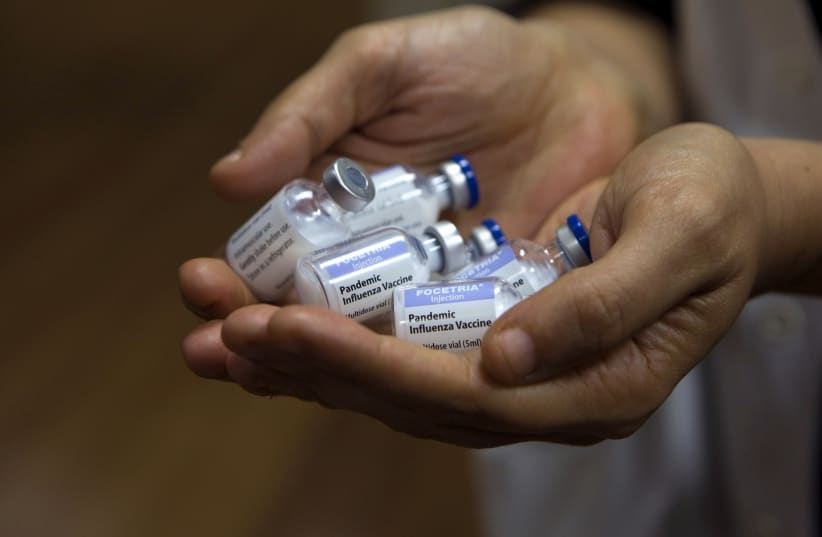Prof. Yossi Karko, director of the Center for Clinical Research at Hadassah-University Medical Center, confirmed that 46 volunteers have been inoculated with the vaccine candidate developed by the Israel Institute for Biological Research (IIBR) so far. An additional 34 people are expected to be injected this week at Hadassah and Sheba Medical Center, thus completing a Phase I human trial.
A spokesperson for Sheba Medical Center told The Jerusalem Post that the volunteers, all healthy individuals between the ages of 18 and 55, are doing well with no major side effects.
A Phase II clinical trial is expected to launch two or three weeks after completion of the Phase I trial, Karko said. Recruitment for Phase II, which will include individuals up to age 85 as well as those with pre-existing medical conditions, is ongoing.
Phase I was meant to determine preliminary safety and effectiveness of the vaccine candidate. Phase II, which is set to include 960 patients, is expected to take place at medical centers across the country. The goal here is to complete safety tests and pinpoint the right doses, as well as to continue gauging effectiveness.
Then, a Phase III trial of 30,000 volunteers will begin next April or May.
Karko said that the IIBR expects an interim analysis of the Phase III data to be completed by summer, which would enable the institute to apply for emergency authorization and begin inoculating the country’s highest-risk patients.
